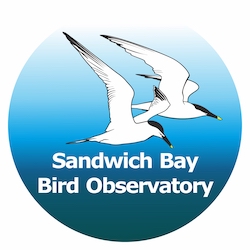This article first appeared in the September 2022 edition of Birdwatching Magazine
My postage stamp yard was hard gardening through April into May… watering is a pain if your garden is 90% pots and containers. Warm dry weather is one thing, but add strong winds and everything dries out fast, even our wildlife pond dropped its level daily. Then for a few days in late May it went crazy. Temperatures soared, the wind dropped and it seemed the rain gods partied every night. My thesaurus was hard put to find other words for verdant, lush, rampant and flourishing. The meagre blooms were replaced by blazes of colour as spring and summer seemed to happen in a week. Campanulas, Cape daisies, foxgloves, alliums and poppies burst into floral song. Seasonal succession, planned last year, failed as everything flowered in one heated rush.
Back in February twenty frogs emerged from behind pots and under the log-corner and serenaded us nightly. We crept out at night and turned on a light to see and hear frogs leap off the plants and wall of the pond and plop into the water. Daytime would see pairs clasped together and another tennis-ball size blob of spawn appear. A week later the pond snails swamped the spawn and grazed on the jelly and all was lost. After years of there being a handful of snails they had literally become hundreds as our last fish had died and nothing was left to graze on the snail eggs stuck to the underside of lily pads.
My diary shows that twenty years ago fourteen swifts appeared on the 6th of May, staying all summer to filter the air of insects. This year four arrived on May 9th, another drop.
My mid-May early morning foray to a Natural England reserve was not the festival of song I hoped for. The Cetti’s obliged by whispering across seven fields to burst one’s eardrum. A handful of Whitethroats proved how well they are doing. A newly arrived Willow Warbler was unmoved by my presence six feet away as it desperately fed. Just one Nightingale sang across the river, hardly bothering with a snatch or two of unmistakable trills. No Swallows flew by, no Sandwich Terns fished and no Cuckoo called.
My late May visit to a RSPB reserve was the same mix of news. It was Whitethroat city and Linnet land, a rabbit run teeming with damselflies that five Hobbies vacuumed up. Cetti’s, Sedge and Reed Warblers flitted in the brambles regardless of our presence and best of all a Bittern boomed so loud and close it made us jump!
But just three swallows flew by and despite islands and scrapes there were no waders bar a lone pair of Oystercatchers and a lapwing. Not even one common tern, the tern rafts held three types of nesting gulls and the dead trees in the water were collapsing under the weight of cormorants. A Short-tailed Vole scuttled across the track – owl food on the hoof, daring the daylight in haste to feed its brood.
There was no shortage of people. Despite pandemics, wars and rampant inflation humans infest the planet, stealing ever more niches. Insect populations have dramatically dropped worldwide, but we still poison the survivors when they dare to taste our crops. We must waste and overeat, guzzle gas and pave over paradise. Reaching the global warming tipping point will pass unnoticed, maybe the meter is hidden under a heap of everlasting plastic? Perhaps our eyes are clouded by exhaust fumes or our ears blocked by the capital-fuelled clamour of corporate spokesmen denying any problem exists. Wake up and smell the forest burning!





